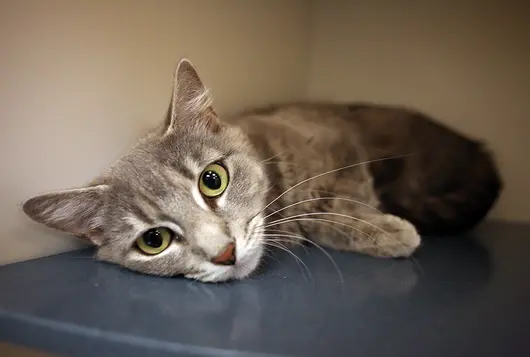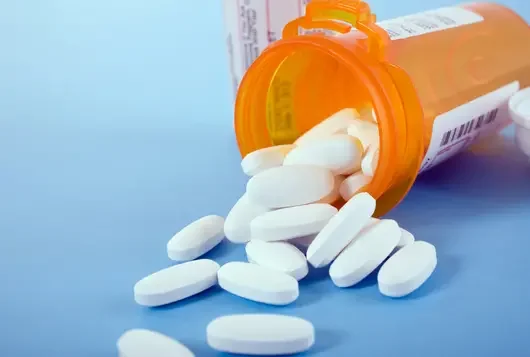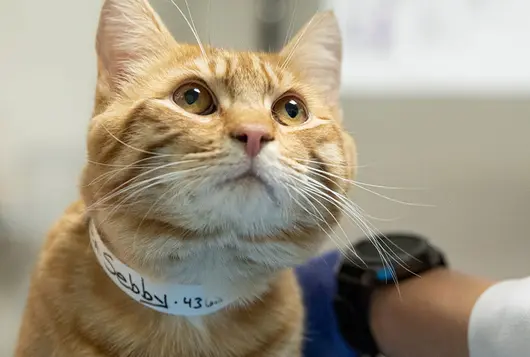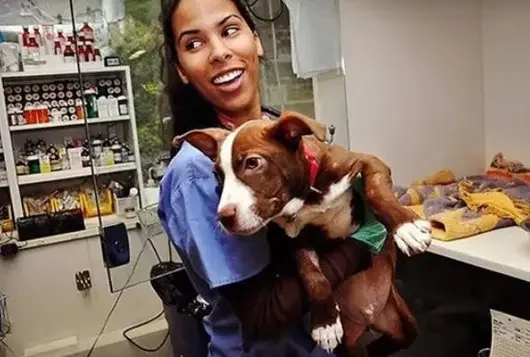Fall Toxins to Watch Out for Around Pets
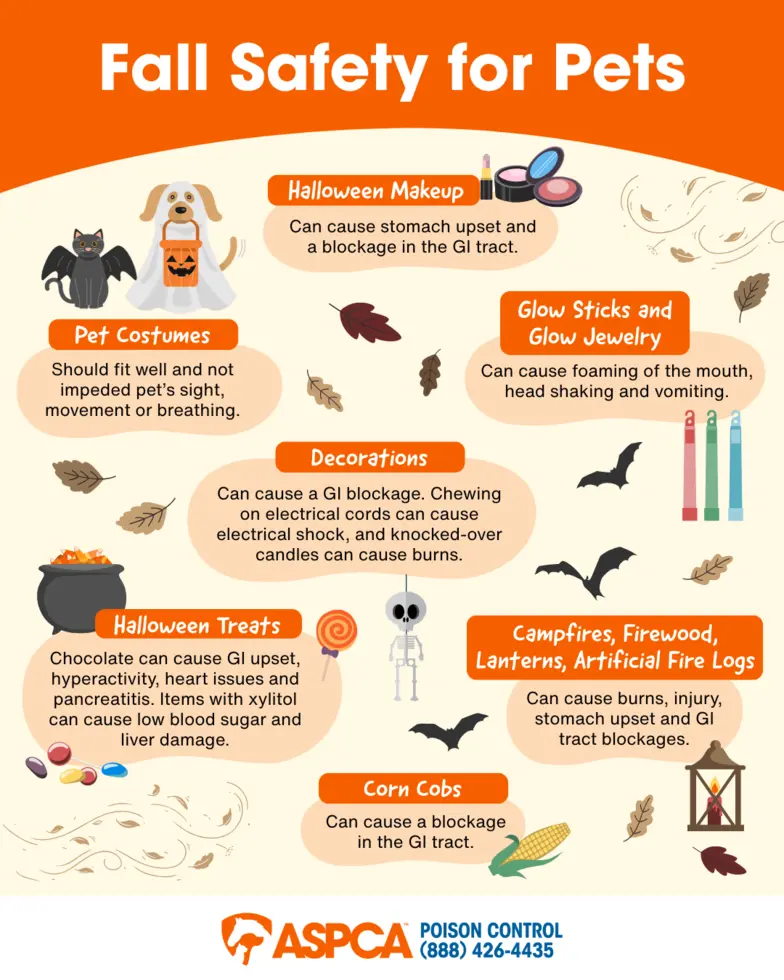
Leaves changing color, sweater weather, campfires, cool crisp air – these are some of the great things to look forward to with cooler fall and winter seasons approaching. However, just like the changing weather, toxin exposures also fluctuate throughout the year. That’s why ASPCA Poison Control wants to remind you of some of the more common toxins your patients may encounter this fall and winter.
Indoors
- With kids back at school, ASPCA Poison Control sees a rise in exposures to ADHD medications, amphetamine salts, lisdexamfetamine and methylphenidate. These medications have a narrow margin of safety. Ingestion typically results in dangerous stimulatory signs such as agitation, tachycardia, hypertension, hyperthermia, tremors and seizures.
- Cooler weather frequently comes with seasonal illnesses. Cold and flu medication may be more accessible when left out on tables or counters. Don’t forget to check all the ingredients, as cold and flu medications typically contain 2 or more active ingredients such as acetaminophen, antihistamines, decongestants and expectorants.
- Halloween, Thanksgiving and Christmas are busy times for ASPCA Poison Control!
- Decorations: While many decorations are gastrointestinal or foreign body obstruction concerns, salt dough ornaments and snow globes deserve special mention as both can be potentially fatal. Like the name suggests, salt dough ornaments are typically made with a lot of salt. Signs of hypernatremia (polydipsia, depression, ataxia, tremors, seizures) can develop rapidly (within 4-6 hours), and treatment can be challenging. Some snow globes may contain ethylene glycol in the liquid portion of the globe to help prevent freezing and breaking.
- Foods: Chocolate exposures really ramp up around Halloween, while yeast dough exposures are more typical around Thanksgiving. Also, with children back in school, snack packs of raisins or grapes leftover in lunchboxes are a common call.
- Decorations: While many decorations are gastrointestinal or foreign body obstruction concerns, salt dough ornaments and snow globes deserve special mention as both can be potentially fatal. Like the name suggests, salt dough ornaments are typically made with a lot of salt. Signs of hypernatremia (polydipsia, depression, ataxia, tremors, seizures) can develop rapidly (within 4-6 hours), and treatment can be challenging. Some snow globes may contain ethylene glycol in the liquid portion of the globe to help prevent freezing and breaking.
Outdoors
- Watch out for the late-blooming autumn crocus (Colchicum sp.) flower. Colchicum sp. contains colchicine, which can cause severe gastroenteritis, hepatic failure, AKI and bone marrow suppression.
- Mushrooms like wet, cool weather, which is why there can be an increase in pet exposures in the spring and fall. While many mushrooms may only cause GI signs, they are often indistinguishable from those that can cause more serious problems such as muscarinic signs, neurologic signs or hepatic failure. While proper identification can help focus an exposure management plan, identification is not always necessary to successfully manage these cases.
- Don’t forget to have your ethylene glycol tests ready. Antifreeze use increases in cooler weather, which means more pets have a chance of licking up the sweet-tasting substance. Not all antifreeze will cause AKI though - have owners bring in the bottle or confirm the ingredients when taking a history for these exposures.
- Cold weather, less food and disturbed farm fields mean that mice are looking for a better place to stay. An increase in rodenticide exposures is commonly seen in the fall as more pet owners place bait out. The most common ingredients are bromethalin (a neurotoxin, anticoagulants and cholecalciferol [vitamin D]). The margin of safety is typically narrow, and identification of the active ingredient should be taken directly from the package whenever possible.
If you need assistance with exposure management for a patient, please reach out to our dedicated team of veterinary toxicology experts at (888) 426-4435.
Downloads
Download AllWe have lots more on this subject:
Topics:
Shelter Medicine
,
Toxicology & Poison Control
Type:
Job Aid Downloads

